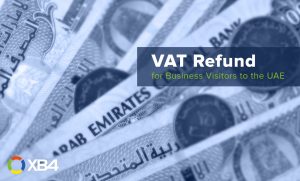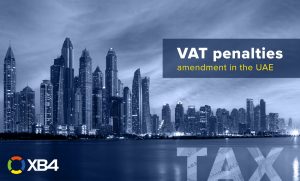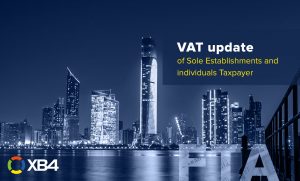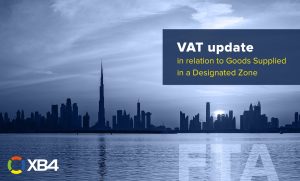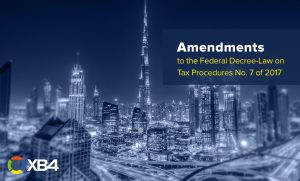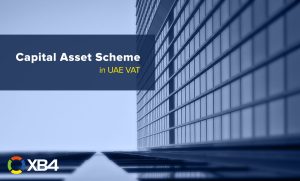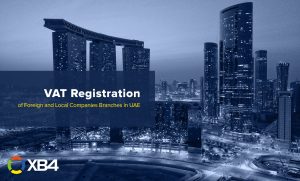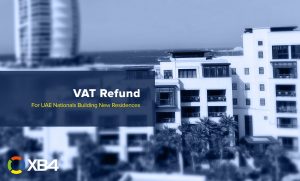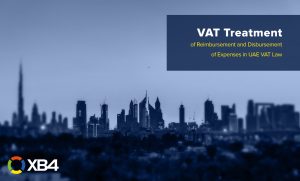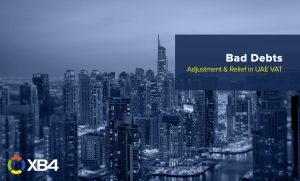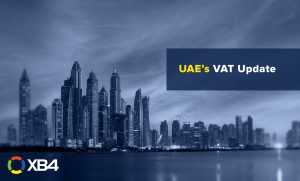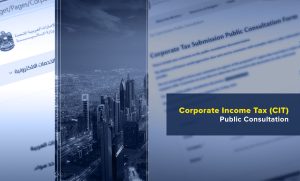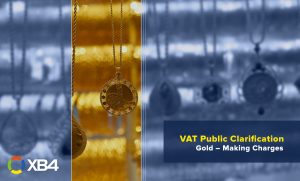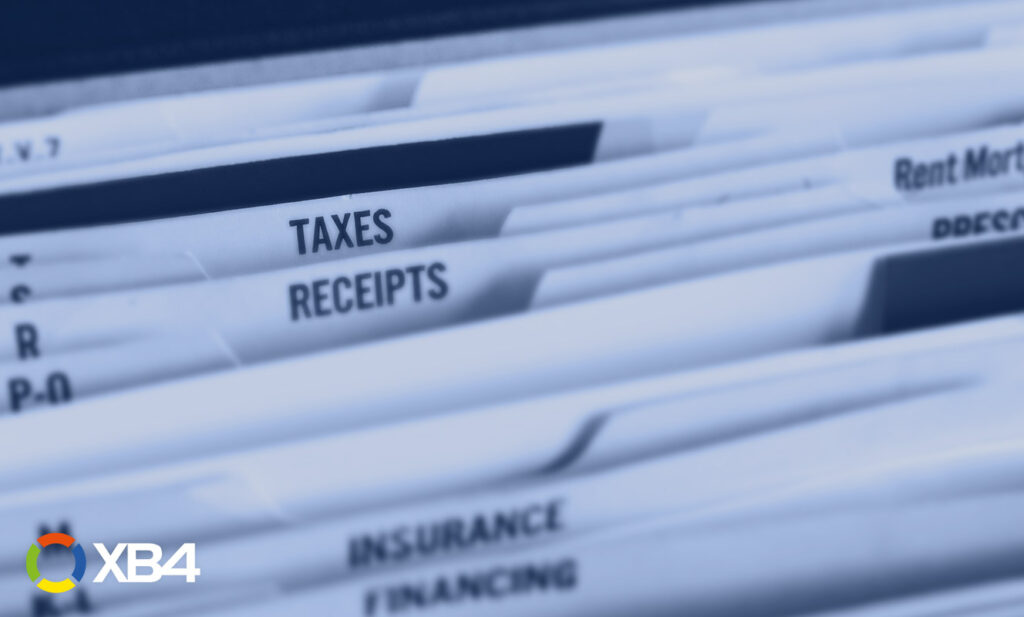
Corporate Tax in the UAE
Introductory article about the Federal Decree-Law No. 47 of 2022
INTRODUCTION
On 09th December 2022, The UAE Ministry of Finance released the Federal Decree-Law No. 47 of 2022 on the Taxation of Corporations and Businesses (” CT Law “). The CT Law comes into effect 15 days from its publication in the official Gazette and applies to financial years commencing on or after 01st June 2023. XB4 will soon arrange awareness sessions to present details and answer questions. There are important areas now for organizations to look into in the planning and implementation of the CT law.; these include and are not limited to the following:
- Organization structure; compliances and tax policies and procedures;
- Business processes data and its collection and maintenance as well as system and controls environment; and
- Accounting and financial records and statements, valuation, as well as system.
Below are some of the main highlights of CT Law.
KEY HIGHLIGHTS
As expected, and confirming what was previously published either through the public consultation document or the initial information issued by the MOF, The CT Law clarifies and expands on many key provisions. Below are the key highlights of the CT Law.
- The UAE’s Corporate Tax regime will levy a standard rate of Nine percent (9%) for Taxable profits exceeding AED 375,000. Profits up to and including that threshold will be taxed at a Zero percent rate (0%) to support small businesses and start-ups. A business subject to the CT with a profit AED 375,000 or less will be required to prepare and submit its tax return.
- For Qualifying Free Zone Person, Corporate Tax shall be imposed at a Zero percent rate (0%) on Qualifying Income, while Nine percent (9%) on Taxable Income that is not considered as a Qualifying Income.
- The Corporate Tax shall be imposed on a Taxable Person who is either a Resident Person (Legal or Natural person) or a Non-Resident Person and will be required to register for Corporate Tax and obtain a Corporate Tax Registration Number.
- The CT Law exempts certain businesses from corporate Tax with certain conditions. The exemptions will be granted either on the nature of the business activity or the type of entity. Similarly, certain types of income may also be exempt.
- Exempted entities are required to file an exemption application to be recognized as such. Exempted entities include government entities and government-controlled entities; qualifying public benefit entities; qualifying investment funds; and pension and social security fund.
- Although natural resource extraction activities are exempted from Corporate Tax, they remain subject to existing local emirate-level Taxation.
- The CT law reinforced that Taxable income for each Tax period will be determined on the basis of the accounting net profit or loss (taxable income) in financial statements prepared for financial reporting purposes in accordance with acceptable accounting standards (International Financial Reporting Standards (IFRSs) for local entities).
- Whilst tax losses can be offset against the taxable income of the subsequent tax periods, only up to 75% of the taxable income can be set off using the carryforward tax losses.
- Small business can elect to be out of having taxable income if meets certain threshold and conditions as shall be conveyed by the Minister.
- A Taxable Person must file a Tax return with the FTA no later than Nine months from the end of the relevant Tax Period. Certain exempted persons may still be required to file CT returns. Required information in the Tax return are specified by the CT Law.
- A Taxable Person shall maintain all records and documents for a period of seven (7) years following the end of the Tax Period.
- Deductible expenses allowed to arrive at the taxable income includes all expenditures incurred by the Taxpayer for a business purpose other than capital expenditures.
- A Taxable Person shall be allowed to deduct fifty percent (50%) of any entertainment, amusement, or recreation expenditure incurred during a Tax Period, while certain expenditures will not be allowed to be deducted.
- Donations, grants or gifts made by the Taxpayer to an entity that is not a qualifying public benefit entity are not deductible for the purpose of calculating the taxable income.
- A UAE resident Group of companies can elect to form a Tax Group if the parent company holds at least 95% (direct and indirectly through other subsidiaries) of the subsidiaries’ share capital and voting rights. Forming a Tax Group is an important way for Taxpayers may reduce the administrative burden of Tax.
- The CT Law exempts the following income in determining Taxable Income:
- Dividends and profit distributions from a juridical person that is a Resident Person;
- Income from a Participating Interest;
- Income of a Foreign Permanent Establishment that meets the conditions; and
- Income derived by a Non-Resident Person from operating aircraft or ships in international transportation that meets certain conditions.
- Corporate Tax will not be applied to salaries or other personal income from employment, whether it is earned from work in the government, semi-governmental or private sector. Interest and other personal income earned from bank deposits or savings programmes are also not subject to Corporate Tax, as well as investment in real estate by individuals in their personal capacity.
- Zero rate (0%) withholding Tax may apply to certain types of UAE-sourced income paid to non-residents. Withholding Tax does not apply to transactions between UAE resident persons.
- The CT Law contains several articles relating to Transfer Pricing, which establishes rules for determining arm’s length standards and sets out definitions for “related parties”, “control”, and “connected persons”. Five methods (in line with the OECD rules) are described to determine the arm’s length price. The option to choose any other method is allowed, provided due justification and application are rendered.
- A taxable person must file a disclosure on transactions or arrangements with its related parties and connected persons when filing the tax return.
- The CT law established general anti-abuse rules which apply to transactions giving rise to a Tax advantage where no valid commercial reason exists and where the Tax advantage was the main or one of the main purposes of the transaction.
- In respect of transitional provisions, Corporate Tax shall apply to transactions or arrangements entered into on or after the date the CT Law is published in the Official Gazette. The opening balance sheet for Tax purposes will be the prior period closing accounting balance sheet, which simplifies the calculation of deferred Tax that needs to be evaluated by Taxpayers going forwards.
- The Ministry will remain the “competent authority” for purposes of bilateral and multilateral agreements and the international exchange of information for tax purposes. The Federal Tax Authority will be responsible for the administration, collection, and enforcement of the Corporate Tax Law.
HOW CAN XB4 HELP YOU?
XB4 is one of the leading, experienced, and professional Tax consultants Firm in the UAE and is a recognized tax Agency by the FTA. We have a professional, experienced team and tax specialists who can help you in the analysis of the Law and its impact on your business.

















